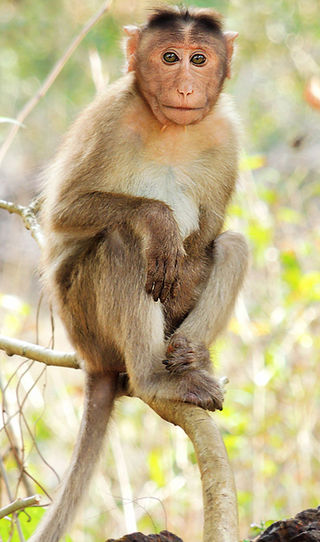
The macaques constitute a genus (Macaca) of gregarious Old World monkeys of the subfamily Cercopithecinae. The 23 species of macaques inhabit ranges throughout Asia, North Africa, and Europe. Macaques are principally frugivorous, although their diet also includes seeds, leaves, flowers, and tree bark. Some species such as the long-tailed macaque will supplement their diets with small amounts of meat from shellfish, insects, and small mammals. On average, a southern pig-tailed macaque in Malaysia eats about 70 large rats each year. All macaque social groups are arranged around dominant matriarchs.
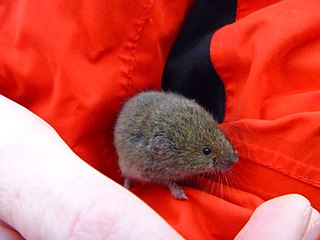
The Bavarian pine vole is a vole from the Austrian, Italian, and Bavarian Alps of Europe. It lives in moist meadows at elevations of 600 to 1,000 meters.

The conservation status of a group of organisms indicates whether the group still exists and how likely the group is to become extinct in the near future. Many factors are taken into account when assessing conservation status: not simply the number of individuals remaining, but the overall increase or decrease in the population over time, breeding success rates, and known threats. Various systems of conservation status are in use at international, multi-country, national and local levels, as well as for consumer use such as sustainable seafood advisory lists and certification. The two international systems are by the International Union for Conservation of Nature (IUCN) and The Convention on International Trade in Endangered Species of Wild Fauna and Flora (CITES).

A near-threatened species is a species which has been categorized as "Near Threatened" (NT) by the International Union for Conservation of Nature (IUCN) as that may be vulnerable to endangerment in the near future, but it does not currently qualify for the threatened status.

An IUCN Red List Critically Endangered species is one that has been categorized by the International Union for Conservation of Nature as facing an extremely high risk of extinction in the wild. As of December 2023, of the 157,190 species currently on the IUCN Red List, 9,760 of those are listed as Critically Endangered, with 1,302 being possibly extinct and 67 possibly extinct in the wild.
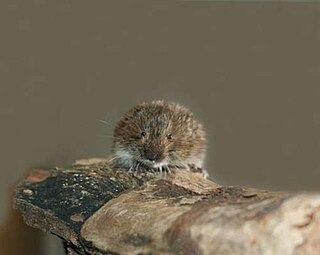
The Tatra pine vole, also called the Tatra vole or Tatra ground vole, is a species of vole endemic to the Carpathian mountain range in Slovakia, Poland, Ukraine and Romania. Two subspecies have been recognised. M. t. tatricus occupies the western part of the range in Slovakia and Poland, and M. t. zykovi is found in Ukraine and Romania.

The Hainan partridge is a species of bird in the family Phasianidae. It is endemic to Hainan Island, China. Its natural habitats are primary evergreen forests. It is threatened by habitat loss and has been assessed as a vulnerable species.

Villa's gray shrew is a shrew native to northeastern Mexico, where it is called musaraña.

The Somali hedgehog is a species of mammal in the family Erinaceidae. It is endemic to Somalia and Somaliland. The Somali hedgehog is nocturnal.

The Andaman spiny shrew or Andaman shrew is a species of mammal in the family Soricidae. It is endemic to India. Its natural habitat is subtropical or tropical dry forests.

Day's shrew is a species of mammal in the family Soricidae. It is endemic to India. Its natural habitat is subtropical or tropical dry forests. It is threatened by habitat loss.
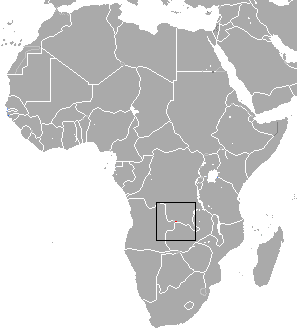
The Sakeji horseshoe bat is a species of bat in the family Rhinolophidae. It is endemic to Zambia. Its natural habitats are subtropical and tropical dry and moist lowland forest, and moist savanna. It is threatened by habitat loss. It was discovered in 2000.

Ptychotrema is a genus of air-breathing land snails, terrestrial pulmonate gastropod molluscs in the subfamily Enneinae of the family Streptaxidae.
Ptychotrema usambarense is a species of air-breathing land snail, a terrestrial pulmonate gastropod mollusc in the family Streptaxidae.
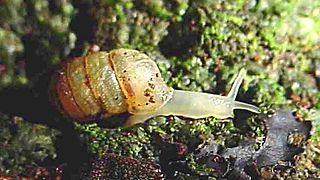
Streptaxidae is a family of carnivorous air-breathing land snails, terrestrial pulmonate gastropod mollusks in the clade Stylommatophora. Six Streptaxidae subfamilies are accepted in the 2005 taxonomy of the Gastropoda by Bouchet & Rocroi.

A vulnerable species is a species which has been categorized by the International Union for Conservation of Nature as being threatened with extinction unless the circumstances that are threatening its survival and reproduction improve.












